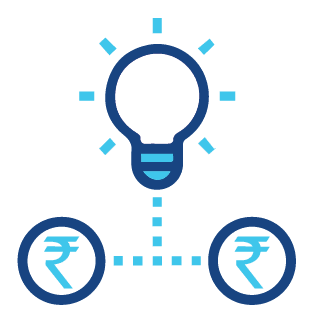Paying off a 15 lakh debt requires a strategic approach. Here are some steps you can take:
- Understand your debts:
List all your debts: Gather information like type of debt (credit card, personal loan, etc.), outstanding amount, interest rate, and minimum payment for each debt.
Prioritize your debts: There are two main strategies for prioritizing your debts:
Focus on high-interest debts first: This method saves you money in the long run as you’ll pay less interest overall.
Pay off small debts first: This can offer a psychological boost as you see debts disappear quickly, potentially keeping you motivated. Choose the approach that best suits your situation.
- Create a budget and track your expenses:
Track your income and expenses: Knowing where your money goes helps identify areas to cut back.
Create a budget: Allocate your income towards necessities, debt payments, and savings. Aim to allocate more than the minimum payment towards your debt. Several budgeting methods exist, like the 50/30/20 rule (50% needs, 30% wants, 20% savings/debt repayment). Choose one that suits your spending habits.
- Explore ways to reduce your expenses:
Identify unnecessary expenses: Analyze your spending habits and cut back on non-essential items like dining out, entertainment, or subscriptions.
Renegotiate bills: Contact your service providers (internet, cable, etc.) and try to negotiate lower rates.
Explore cheaper alternatives: Look for cheaper alternatives for groceries, household items, etc.
- Increase your income (optional):
Look for a side hustle: Consider a freelance job, part-time work, or selling unused items to generate additional income for debt repayment.
Negotiate a raise: If your performance merits it, consider discussing a raise with your employer.
- Explore debt consolidation (optional):
Debt consolidation loan: Consider a debt consolidation loan with a lower interest rate than your existing debts. This simplifies your repayment process with a single monthly payment. However, carefully evaluate the terms and ensure it reduces your overall interest paid.
Additional tips:
Build an emergency fund: Aim to save a small emergency fund to cover unexpected expenses and avoid using credit cards in such situations.
Seek professional help: If you feel overwhelmed, consider consulting a credit counselor or financial advisor for personalized guidance.
Remember, clearing debt takes time and discipline. Stay committed to your plan, track your progress, and celebrate milestones to stay motivated on your journey to becoming debt-free.































